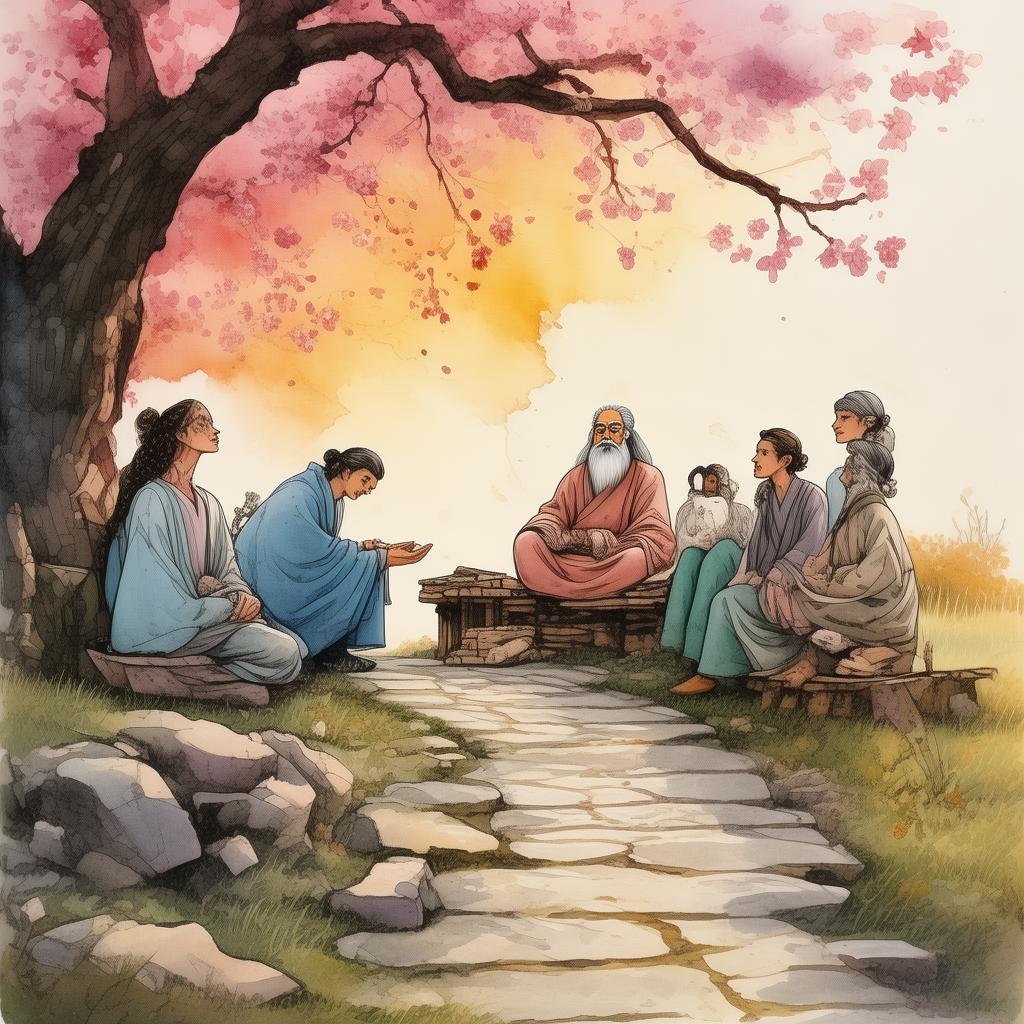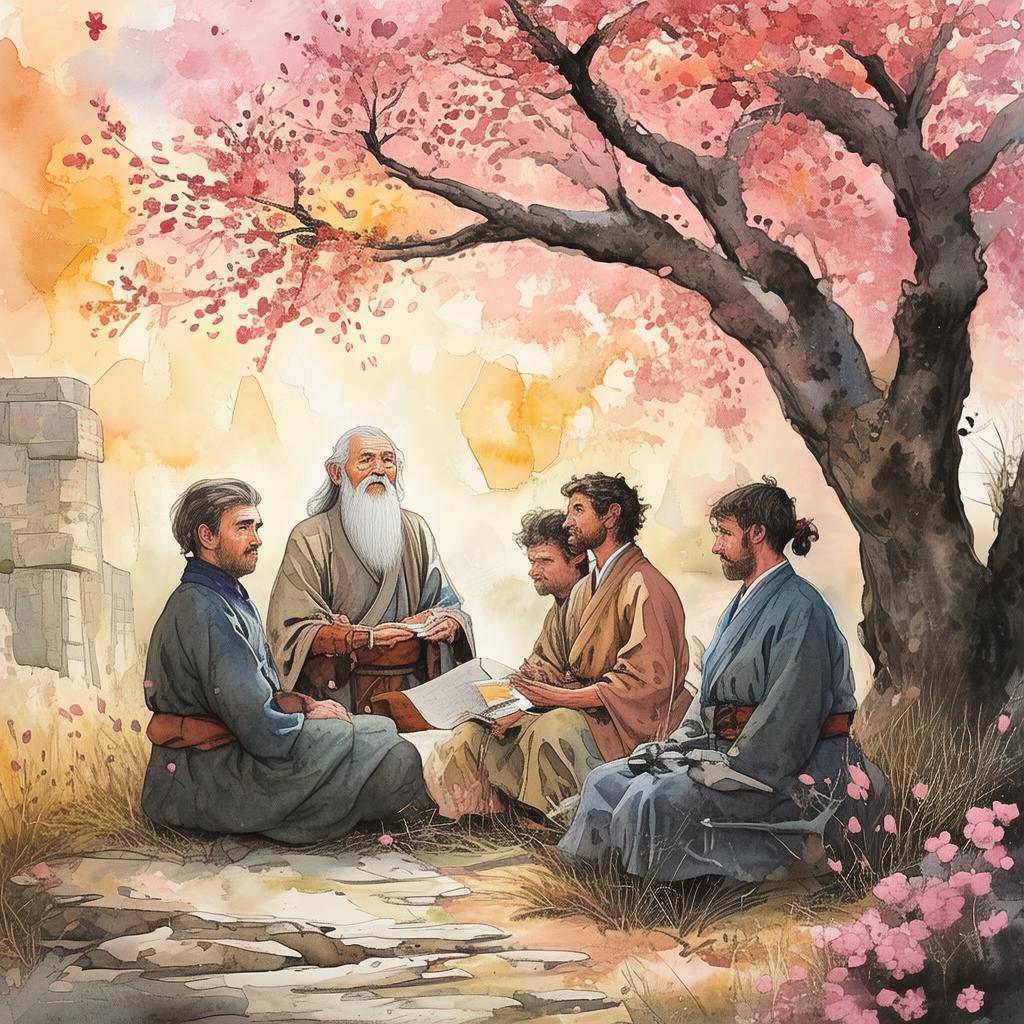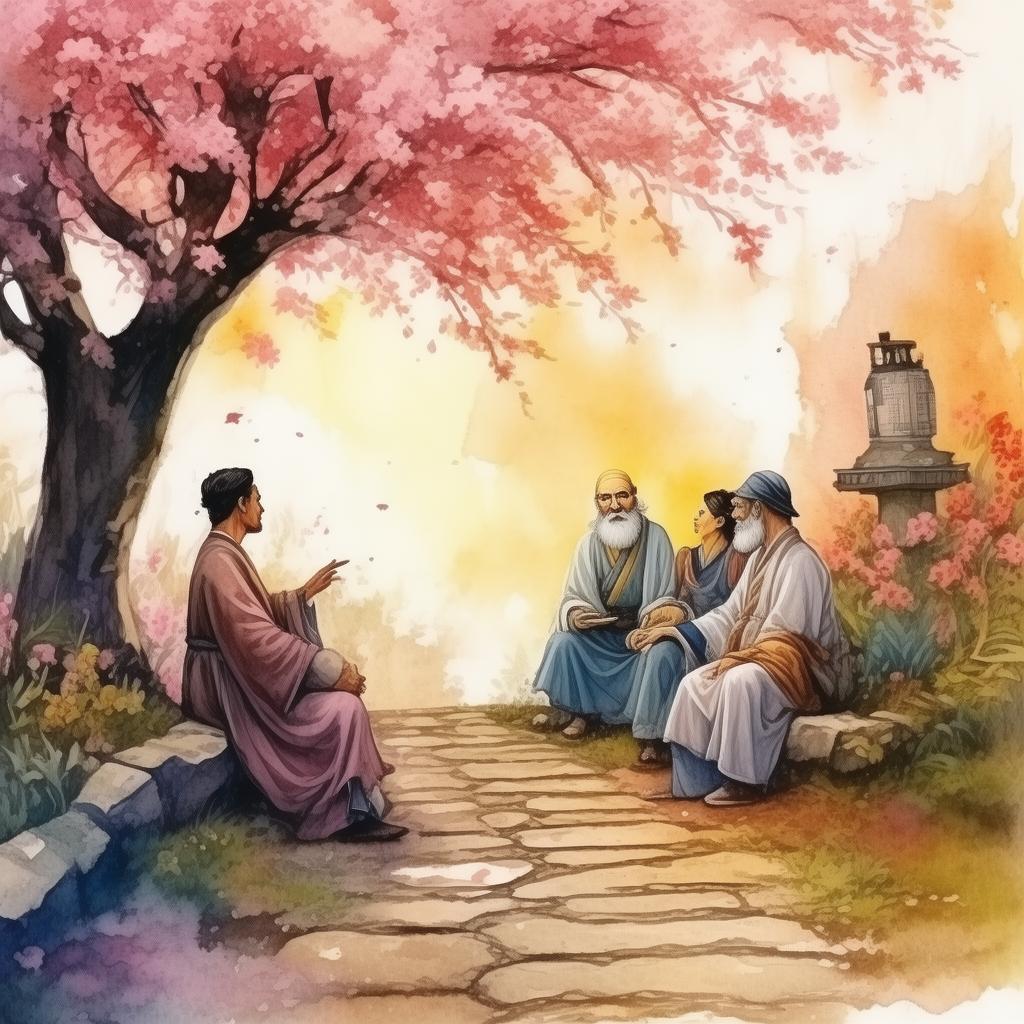The Ironclad Strategy: Zhou Yu's Masterstroke
In the twilight of the Eastern Han dynasty, the land of China was riven by conflict. The Three Kingdoms period had dawned, with the states of Wei, Shu, and Wu vying for power and territory. Among the many strategists and warriors of the time, none were more renowned than Zhou Yu, the general of the state of Wu. Zhou Yu's reputation was not just for his battlefield prowess but for his unparalleled ability to unite people against a common foe.
The year was 208. Wu was at the height of its power under the leadership of Sun Quan. However, the neighboring state of Shu, led by Liu Bei, was growing stronger. In addition, the mighty state of Wei, under the command of Cao Cao, loomed large, its ambitions ever more ominous. Zhou Yu understood that if Wu was to survive, it needed to forge alliances with its former enemies, Shu and Wei.
He gathered his advisors and outlined his plan: the Ironclad Strategy. The idea was to present a united front against the impending threat of Cao Cao, who had amassed an enormous army and was poised to conquer all of China. To achieve this, Zhou Yu needed the support of both Shu and Wei.
First, he traveled to Shu, where he convinced Liu Bei to join the alliance. The Shu emperor, Liu Bei, was initially skeptical, but Zhou Yu's persuasive arguments and the potential threat from Wei swayed him. The alliance was formed, and preparations began for the grand alliance against Cao Cao.
Zhou Yu then turned his attention to Wei. He knew that a direct approach would be met with resistance, so he sent a series of cryptic messages through intermediaries, hinting at the strength of the Wu navy and the resolve of its people. He emphasized the common enemy and the potential for peace and prosperity if they united.
The message reached the ears of Cao Cao, who was not one to be easily swayed. He decided to test Zhou Yu's sincerity by sending a delegate to Wu to inspect the navy's readiness. Zhou Yu welcomed the delegate with open arms, showing off his formidable navy and even offering to share intelligence about Wei's own defenses.

The delegate returned to Cao Cao with glowing reports of Wu's strength and the unity of the alliance. Cao Cao, now more convinced of the seriousness of the threat, began to prepare for the battle that would decide the fate of China.
As the forces of Wu, Shu, and Wei gathered at the Yangtze River, Zhou Yu faced a crisis of his own. Among his advisors, there was a whisper of treachery. A general named Huang Zu was rumored to be in league with Cao Cao. Zhou Yu, though, chose to trust his men and the unity of their cause.
The battle commenced with a fury. The combined navy of Wu and Shu faced off against the massive army of Wei. The Yangtze River became a scene of chaos, with arrows flying and ships colliding. Zhou Yu's strategy was to engage the enemy in the middle of the river, where the terrain was more favorable for his naval forces.
As the battle raged on, Huang Zu's treachery was revealed. He had indeed betrayed the alliance and joined Cao Cao. Zhou Yu's heart sank as he realized that the unity he had worked so hard to achieve was at risk. Yet, instead of losing hope, he turned his focus to the battle at hand.
With the support of the Shu navy, Zhou Yu confronted Huang Zu. In a fierce duel, Zhou Yu defeated Huang Zu and restored order to the alliance. The combined forces of Wu and Shu overwhelmed the forces of Wei, and Cao Cao's army was forced to retreat.
The victory was a testament to Zhou Yu's strategic brilliance and the unity of the alliance. The Ironclad Strategy had worked, and the fate of China had been preserved. Zhou Yu's name became synonymous with unity and strategy, and his legend would live on for generations.
In the aftermath of the battle, Zhou Yu reflected on the treachery that had threatened to tear apart his carefully constructed alliance. He understood that trust was a delicate thing, but it was worth the effort to maintain. The Ironclad Strategy had not only preserved Wu's independence but had also set the stage for a new era of cooperation among the warring states.
The legacy of Zhou Yu's masterstroke would be remembered not only for the victory it brought but also for the enduring lesson of unity in the face of adversity. Zhou Yu's life was a story of strategic brilliance, unwavering resolve, and the power of unity against all odds.
✨ Original Statement ✨
All articles published on this website (including but not limited to text, images, videos, and other content) are original or authorized for reposting and are protected by relevant laws. Without the explicit written permission of this website, no individual or organization may copy, modify, repost, or use the content for commercial purposes.
If you need to quote or cooperate, please contact this site for authorization. We reserve the right to pursue legal responsibility for any unauthorized use.
Hereby declared.









